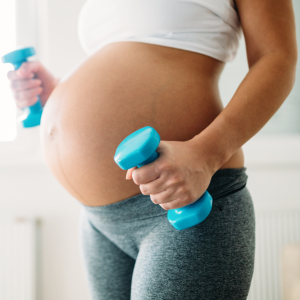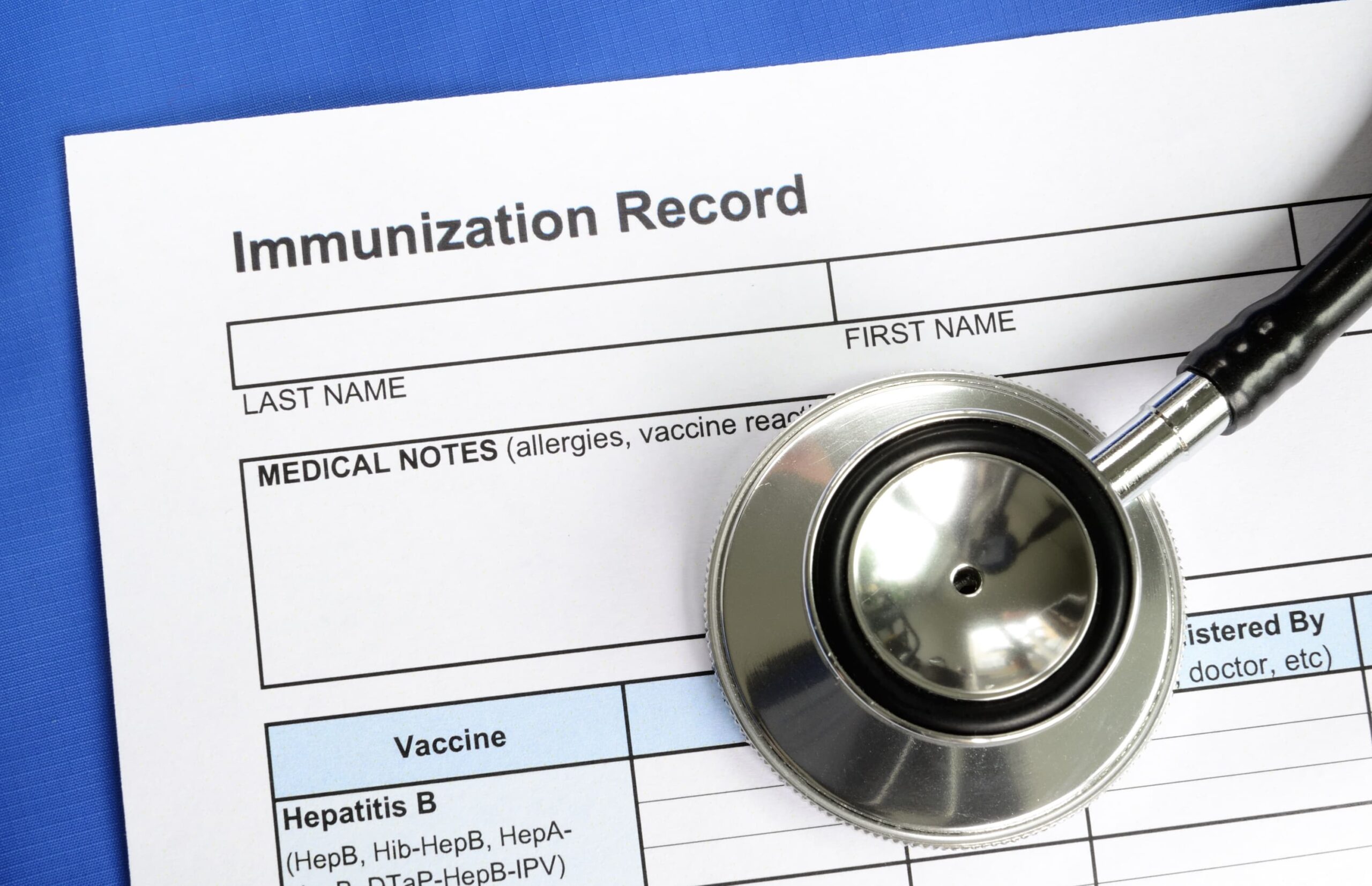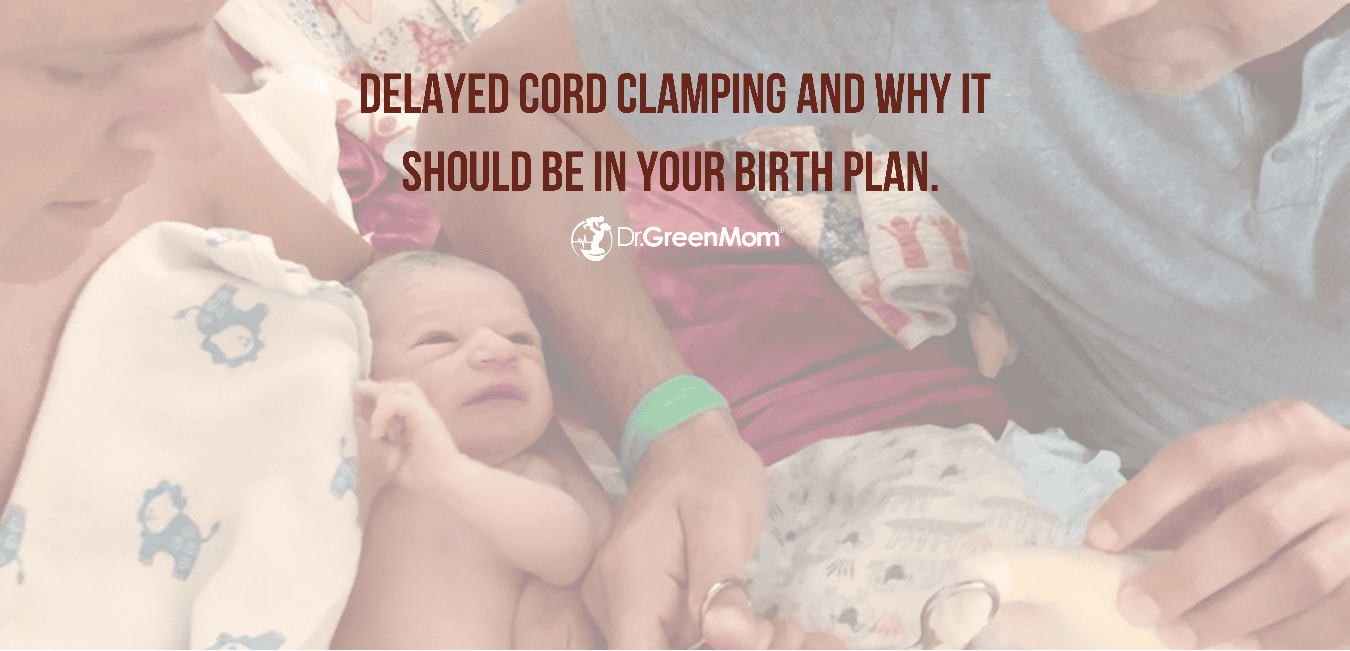Pregnancy is a time of immense joy and anticipation, but it can also be a time of incredible fatigue. Growing a human being is an energy intensive process! That said, some expectant mothers struggle so much with pregnancy fatigue that it becomes hard to keep up with daily tasks. I want to help you understand the processes that are happening in your body that may be making you feel exhausted and provide you with some tools to increase your energy. This article describes the potential causes of pregnancy fatigue and provides management strategies.
Why Pregnancy Fatigue Occurs
Pregnancy fatigue is especially common in the first and third trimesters, and many women find they get some respite during the second trimester. Here’s a deeper look at the reasons behind pregnancy fatigue:
1. Hormonal Changes
In the first trimester, progesterone levels rise rapidly to support the early stages of pregnancy (1). This hormone can contribute to feelings of fatigue as it sometimes has a sedative effect on the body (2).
During the second trimester, progesterone levels begin to stabilize (1), and many women notice an improvement in energy levels. This is likely because the body has adapted to hormonal changes, including the initial rise in progesterone, and other pregnancy hormones, like estrogen and hCG (3). The relative stabilization of these hormones tends to lead to fewer energy fluctuations, allowing many women to feel more energized compared to the first trimester.
By the third trimester, progesterone levels rise again (1,3), preparing the body for labor. This increase, coupled with a rise in estrogen (3), can contribute to the return of fatigue many women experience during this time.
2. Increased Energy Demand
During pregnancy, your body is growing a new life, which requires an incredible amount of energy (4,5). From building the placenta to increasing your blood supply to nourishing your baby, your body is constantly working. Additionally, your body’s metabolic rate increases during pregnancy (5), meaning your energy stores are used up faster.
3. Blood Sugar Fluctuations
Blood sugar fluctuations are common during pregnancy, especially as your body adapts to increased energy demands (6). If your blood sugar dips, it can cause fatigue, dizziness, nausea, and irritability. Keeping your blood sugar stable by eating regularly and choosing nutrient-dense foods is helpful for maintaining energy levels.
4. Iron Deficiency Anemia
Iron deficiency anemia is common in pregnancy (7), particularly in the second and third trimesters when your blood volume increases by up to 50% (8). If you’re not getting enough iron from your diet or prenatal supplements, it can lead to anemia, which may cause severe fatigue as well as weakness, shortness of breath, and dizziness (9). Your medical provider should be regularly testing your blood during pregnancy to check for anemia.
5. Exhausting Pregnancy Emotions
The emotional aspect of pregnancy can play a significant role in contributing to fatigue, sometimes just as much as the physical changes! The anticipation of becoming a parent, adjusting to your changing body, and managing daily responsibilities while dealing with uncomfortable symptoms can all take a mental toll, leaving you feeling emotionally drained. It’s not just the expected emotions of excitement or anxiety either. Many women find themselves more sensitive and emotional during pregnancy, sometimes tearing up over the smallest things (10). This increased emotional reactivity takes up more mental energy than you might think!
Have you ever heard of “baby brain”? Read this article to learn more: 4 Causes of Baby Brain And What To Do About Them
 6. Disrupted Sleep
6. Disrupted Sleep
As your pregnancy progresses, getting a good night’s sleep can become more difficult due to physical discomfort, frequent urination, and issues like restless legs, heartburn, congestion and even just trouble finding a comfortable sleeping position. It is frustrating to feel so incredibly tired yet be unable to sleep well.
To learn more about insomnia, read this article: Understanding Insomnia: Sleep Onset vs. Sleep Maintenance
How to Manage Pregnancy Fatigue
Now that we’ve explored the various factors contributing to pregnancy fatigue, let’s shift our focus to managing and reducing it. By addressing the root causes where possible and implementing supportive strategies, you can regain some of your energy.
1. Prioritize Rest and Sleep
Your body’s working overtime during pregnancy, so rest is essential. If you’re able to, take naps during the day or go to bed earlier. If it isn’t feasible to improve the quantity of your sleep, you can work on improving the quality of your sleep.
Some ideas include using supportive pillows, practicing relaxation techniques before bed, and trying pregnancy-safe herbs for relaxation, such as lemon balm and oatstraw. Some pregnant women struggle with congestion, especially during the third trimester. This is due to increased blood flow and hormonal changes that cause the nasal passages to swell, a condition known as pregnancy rhinitis (11). While it’s not harmful, it can be very bothersome and interrupt sleep. For this, I often recommend utilizing botanical steam inhalation. Elevating your head with extra pillows may also help alleviate congestion and improve sleep.
If heartburn is keeping you up, this article can help: Natural Treatment of GERD During Pregnancy
2. Stabilize Blood Sugar Levels
Maintaining stable blood sugar levels is essential for keeping your energy steady throughout the day during pregnancy. Focus on eating regular balanced meals and snacks that include a combination of protein, healthy fats, and complex carbohydrates.
I recommend all pregnant mamas start their day with a nutrient-dense breakfast that will provide long-lasting energy, such as eggs with avocado on whole-grain toast or a smoothie packed with protein, healthy fats, and fiber. Research shows that a protein-rich breakfast positively impacts blood sugar levels throughout the day (12).
Because your metabolism speeds up during pregnancy (5), you may find that snacking becomes more important, even if it wasn’t part of your routine prior to pregnancy. Opt for snacks like nuts, Greek yogurt, or hummus with veggies to maintain stable energy levels. You may find that a bedtime snack helps you sleep better and feel better in the morning, too.
For bedtime snack ideas, read this article: Melatonin Rich Food Sources & Bedtime Snacks
It’s best to avoid refined sugars and processed foods, as they can cause quick spikes followed by sharp crashes in blood sugar, leaving you feeling even more fatigued. The age-old tip of eating saltine crackers during pregnancy to combat nausea may help temporarily, but it’s not the best strategy for stabilizing blood sugar in the long run. Instead, focus on snacks with a balance of protein and fiber to keep your energy levels consistent.
Dealing with pregnancy nausea? Read this article for a nutritional approach: Nutrient Deficiencies Associated with Morning Sickness
3. Focus on Nutritional Support
To fight fatigue, focus on a nutrient-dense diet that supports both you and your growing baby. In addition to protein, fats, and complex carbohydrates, certain vitamins and minerals can be particularly helpful:
- Iron: If you’re struggling with anemia, include iron-rich foods like spinach, lentils, red meat, and poultry. Iron supplements may also be necessary if your iron levels are low. Pairing iron-rich foods with vitamin C (like citrus fruits) enhances absorption (13).
- Folate and B12: These vitamins are essential for cellular energy and red blood cell production (14). Aim to include leafy greens, eggs, and legumes in your diet.
- Vitamin B6: Vitamin B6 is important for energy production, and research shows it may be helpful for alleviating morning sickness, too (15)!
A great whole-food source of iron, folate, vitamin b12 and b6 is beef liver! If you can’t stomach it on its own, desiccated beef liver pills are a convenient alternative.
- Magnesium: This mineral supports energy production and helps combat muscle cramps (16), both of which can affect sleep and energy levels. Foods rich in magnesium include nuts, seeds, leafy greens, and whole grains.
- Iodine: Iodine is required for healthy thyroid function, which impacts your metabolism and energy levels. During pregnancy, iodine intake needs to increase to support your baby’s brain development and growth (17). Iodine-rich foods include seaweed, dairy, and eggs.
To learn more about anemia, read this article: 9 Micronutrient Deficiencies Associated with Anemia
4. Consider Acupuncture
Acupuncture is a traditional Chinese medicine practice that can be particularly effective for treating pregnancy fatigue (18). By stimulating specific points in the body, acupuncture aims to support energy flow (Qi), stress management, and relaxation.
Several studies suggest that acupuncture can also improve sleep quality, reduce nausea, and alleviate discomfort (19), making it a great holistic tool for addressing both physical and emotional factors that contribute to fatigue.
5. Exercise
Though it might seem counterintuitive, gentle physical activity can improve circulation and boost energy levels (19). Low-impact exercises like walking, swimming, and prenatal yoga can help balance energy, reduce stress, and improve sleep quality (20). For busy mamas, I recommend incorporating a few of these micro workouts each day. These activities also help with blood sugar regulation by increasing insulin sensitivity (21).
 Exercise will also help you manage the emotional aspects of pregnancy. You’ll be surprised what a quick workout can do for your mood!
Exercise will also help you manage the emotional aspects of pregnancy. You’ll be surprised what a quick workout can do for your mood!
6. Stay Hydrated
Did you know that your hydration needs increase during pregnancy (22)? And that dehydration can worsen fatigue (23)? Aim to drink plenty of water throughout the day, and consider adding natural electrolytes to your water, such as a pinch of sea salt or a splash of coconut water, to stay properly hydrated.
7. Be Mindful of Caffeine Intake
Caffeine is often used to combat fatigue, but during pregnancy, it’s important to be cautious with how much you consume. Excessive caffeine intake can increase the risk of certain pregnancy complications (24). Experts generally recommend limiting caffeine to 200 milligrams per day (24) (about one 12-ounce cup of coffee) during pregnancy.
For more information on caffeine during pregnancy, read this article: Caffeine Consumption During Pregnancy and Lactation
When To Be Concerned About Pregnancy Fatigue
Fatigue is a normal part of pregnancy, but if it’s severe, persistent, or accompanied by other symptoms, like shortness of breath, dizziness, or heart palpitations, it’s important to talk to your healthcare provider. Anemia, thyroid disorders, and gestational diabetes are all potential causes of extreme fatigue that may require treatment.
Feeling fatigued and lacking energy alongside other symptoms like feeling sad or apathetic may be a sign of prenatal depression, a type of clinical depression that can occur during pregnancy and can be a precursor to postpartum depression. If you think you might be struggling with depression, contact your doctor or call 1-833-TLC-MAMA for free, confidential support 24/7.
To learn more about postpartum depression, read this article: Identifying and Managing Postpartum Depression
Summary
Pregnancy fatigue is a common experience, especially during the first and third trimesters as your body undergoes significant hormonal changes and increased energy demands. Factors such as hormonal fluctuations, blood sugar instability, anemia, heightened emotions, and disrupted sleep can all contribute to feeling more tired than usual. Fortunately, there are ways to manage this fatigue, including prioritizing rest, stabilizing blood sugar with nutrient-dense meals, staying hydrated, and incorporating gentle exercise. However, if fatigue becomes severe or persistent, it’s important to consult with your healthcare provider to rule out any underlying conditions.
References:
- Kumar, P., & Magon, N. (2012). Hormones in pregnancy. Nigerian medical journal: journal of the Nigeria Medical Association, 53(4), 179–183. https://doi.org/10.4103/0300-1652.107549
- John Hopkins Medicine. (n.d.). First Trimester Fatigue. Www.hopkinsmedicine.org. https://www.hopkinsmedicine.org/health/conditions-and-diseases/first-trimester-fatigue
- Schock, H., Zeleniuch-Jacquotte, A., Lundin, E., Grankvist, K., Lakso, H.-Å., Idahl, A., Lehtinen, M., Surcel, H.-M., & Fortner, R. T. (2016). Hormone concentrations throughout uncomplicated pregnancies: a longitudinal study. BMC Pregnancy and Childbirth, 16(1). https://doi.org/10.1186/s12884-016-0937-5
- Institute of Medicine (US) Committee on Nutritional Status During Pregnancy and Lactation. (1990). Nutrition During Pregnancy: Part I Weight Gain: Part II Nutrient Supplements. Washington (DC): National Academies Press (US); 1990. 7, Energy Requirements, Energy Intake, and Associated Weight Gain during Pregnancy. https://www.ncbi.nlm.nih.gov/books/NBK235247/
- Most, J., Dervis, S., Haman, F., Adamo, K. B., & Redman, L. M. (2019). Energy Intake Requirements in Pregnancy. Nutrients, 11(8), 1812. https://doi.org/10.3390/nu11081812
- Angueira, A. R., Ludvik, A. E., Reddy, T. E., Wicksteed, B., Lowe, W. L., Jr, & Layden, B. T. (2015). New insights into gestational glucose metabolism: lessons learned from 21st century approaches. Diabetes, 64(2), 327–334. https://doi.org/10.2337/db14-0877
- Georgieff M. K. (2020). Iron deficiency in pregnancy. American journal of obstetrics and gynecology, 223(4), 516–524. https://doi.org/10.1016/j.ajog.2020.03.006
- Soma-Pillay, P., Nelson-Piercy, C., Tolppanen, H., & Mebazaa, A. (2016). Physiological changes in pregnancy. Cardiovascular journal of Africa, 27(2), 89–94. https://doi.org/10.5830/CVJA-2016-021
- Abu-Ouf, N. M., & Jan, M. M. (2015). The impact of maternal iron deficiency and iron deficiency anemia on child’s health. Saudi medical journal, 36(2), 146–149. https://doi.org/10.15537/smj.2015.2.10289
- American Pregnancy Association. (2019, May 1). Mood Swings During Pregnancy. https://americanpregnancy.org/healthy-pregnancy/pregnancy-health-wellness/mood-swings-during-pregnancy/
- Ellegård, E. K. (2003). The etiology and management of pregnancy rhinitis. Am J Respir Med. 2003;2(6):469-75. doi: 10.1007/BF03256674. PMID: 14719986.
- Maki, K. C., Phillips-Eakley, A. K., & Smith, K. N. (2016). The Effects of Breakfast Consumption and Composition on Metabolic Wellness with a Focus on Carbohydrate Metabolism. Advances in nutrition (Bethesda, Md.), 7(3), 613S–21S. https://doi.org/10.3945/an.115.010314
- Lynch, S. R., & Cook, J. D. (1980). Interaction of vitamin C and iron. Annals of the New York Academy of Sciences, 355, 32–44. https://doi.org/10.1111/j.1749-6632.1980.tb21325.x
- Tardy, A. L., Pouteau, E., Marquez, D., Yilmaz, C., & Scholey, A. (2020). Vitamins and Minerals for Energy, Fatigue and Cognition: A Narrative Review of the Biochemical and Clinical Evidence. Nutrients, 12(1), 228. https://doi.org/10.3390/nu12010228
- Mount Sinai Health System. (n.d.). Vitamin B6 (Pyridoxine) Information. Mount Sinai – New York. https://www.mountsinai.org/health-library/supplement/vitamin-b6-pyridoxine
- National Institutes of Health. (2022, June 2). Office of Dietary Supplements – Magnesium. https://ods.od.nih.gov/factsheets/Magnesium-HealthProfessional/
- Pearce, E. N. Iodine supplementation during pregnancy. (2017). Www.who.int. https://www.who.int/tools/elena/commentary/iodine-pregnancy
- Tingting, L., Tongou, L., & Mingfu, L. (2024). Effectiveness and safety of acupuncture in treatment of pregnancy-related symptoms: a systematic review and Meta-analysis. Journal of traditional Chinese medicine = Chung i tsa chih ying wen pan, 44(1), 16–26. https://doi.org/10.19852/j.cnki.jtcm.20231204.006
- Wender, C. L. A., Manninen, M., & O’Connor, P. J. (2022). The Effect of Chronic Exercise on Energy and Fatigue States: A Systematic Review and Meta-Analysis of Randomized Trials. Frontiers in psychology, 13, 907637. https://doi.org/10.3389/fpsyg.2022.907637
- Alnawwar, M. A., Alraddadi, M. I., Algethmi, R. A., Salem, G. A., Salem, M. A., & Alharbi, A. A. (2023). The Effect of Physical Activity on Sleep Quality and Sleep Disorder: A Systematic Review. Cureus, 15(8), e43595. https://doi.org/10.7759/cureus.43595
- Venkatasamy, V. V., Pericherla, S., Manthuruthil, S., Mishra, S., & Hanno, R. (2013). Effect of Physical activity on Insulin Resistance, Inflammation and Oxidative Stress in Diabetes Mellitus. Journal of clinical and diagnostic research : JCDR, 7(8), 1764–1766. https://doi.org/10.7860/JCDR/2013/6518.3306
- Song, Y., Zhang, F., Lin, G., Wang, X., He, L., Li, Y., Zhai, Y., Zhang, N., & Ma, G. (2023). A Study of the Fluid Intake, Hydration Status, and Health Effects among Pregnant Women in Their Second Trimester in China: A Cross-Sectional Study. Nutrients, 15(7), 1739. https://doi.org/10.3390/nu15071739
- Pross, N., Demazières, A., Girard, N., Barnouin, R., Santoro, F., Chevillotte, E., Klein, A., & Le Bellego, L. (2013). Influence of progressive fluid restriction on mood and physiological markers of dehydration in women. The British journal of nutrition, 109(2), 313–321. https://doi.org/10.1017/S0007114512001080
- National Institutes of Health. (2021, March 25). Moderate daily caffeine intake during pregnancy may lead to smaller birth size. National Institutes of Health (NIH). https://www.nih.gov/news-events/news-releases/moderate-daily-caffeine-intake-during-pregnancy-may-lead-smaller-birth-size







